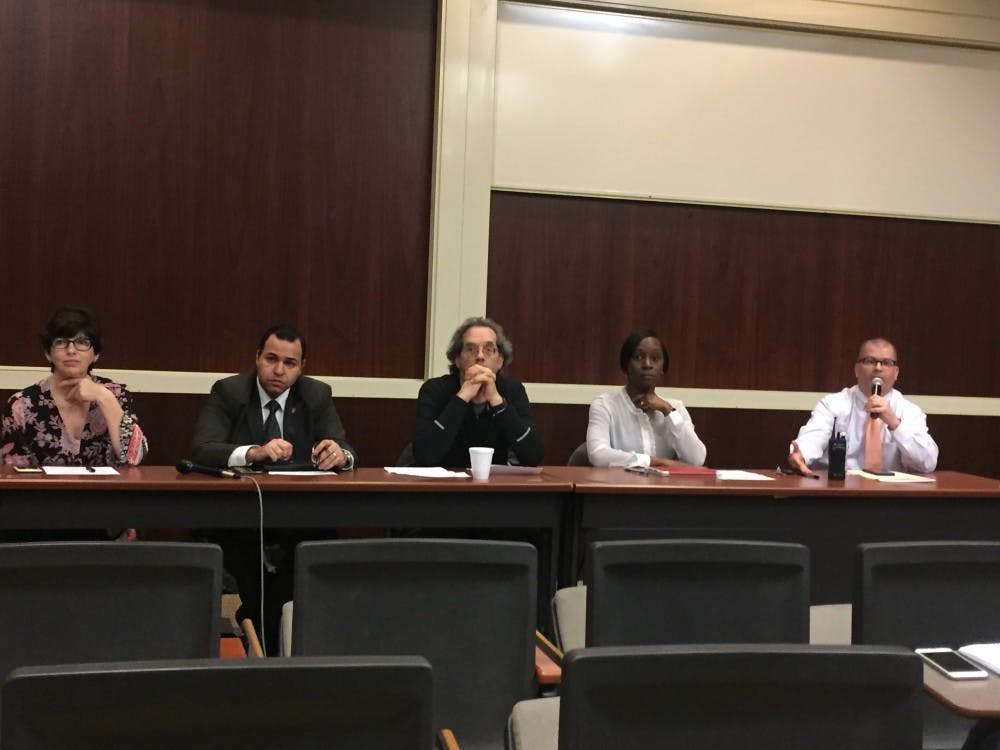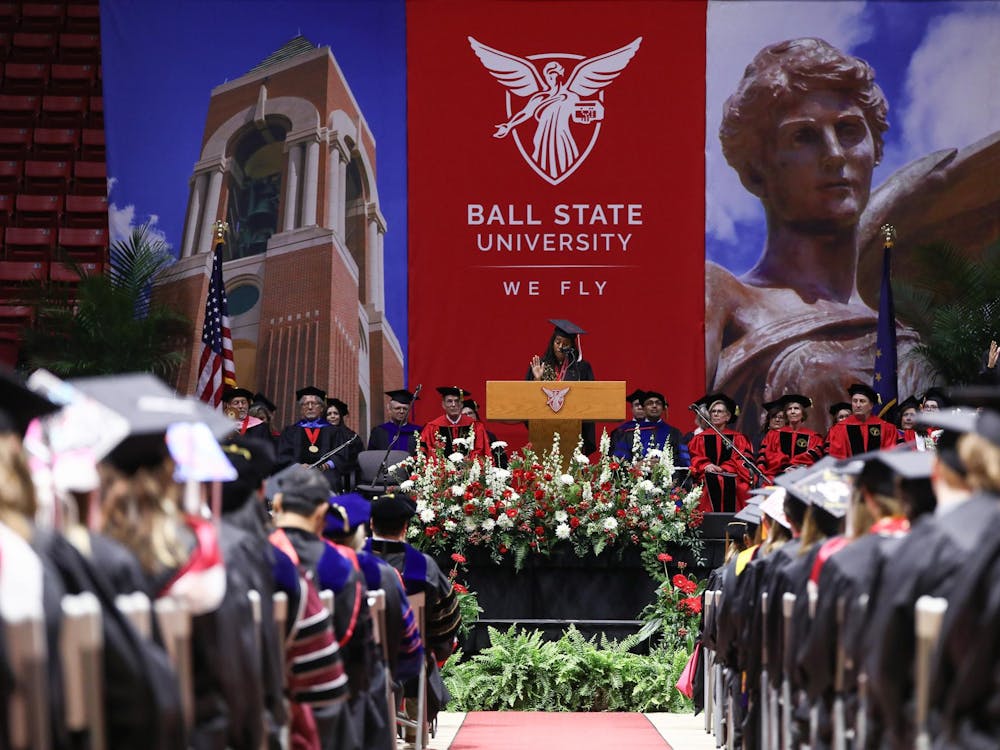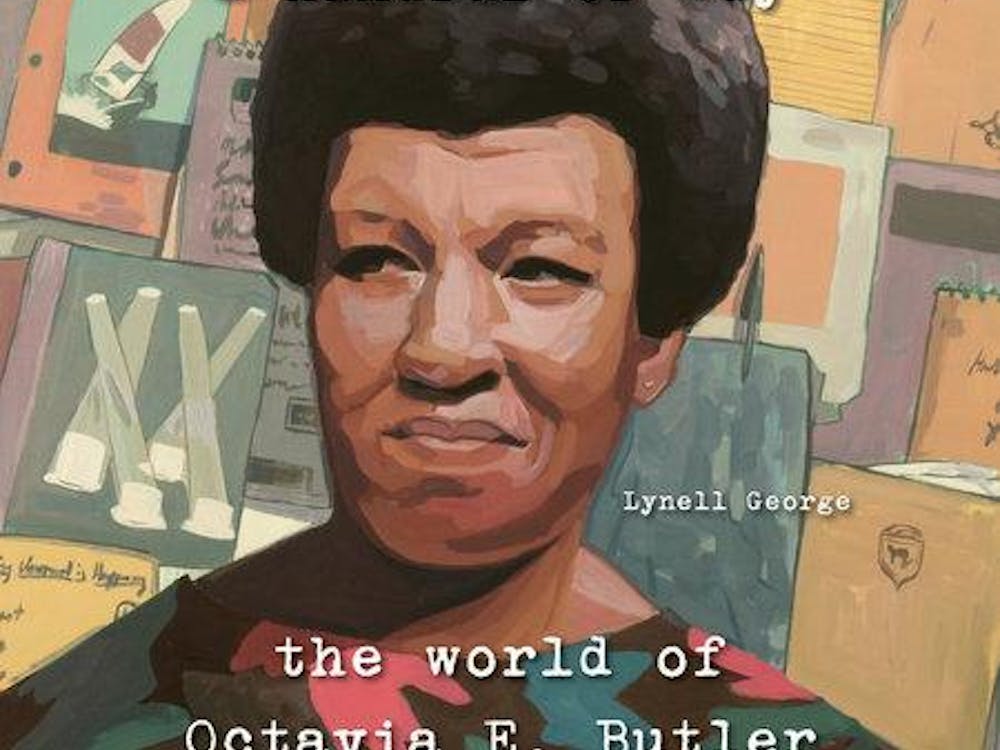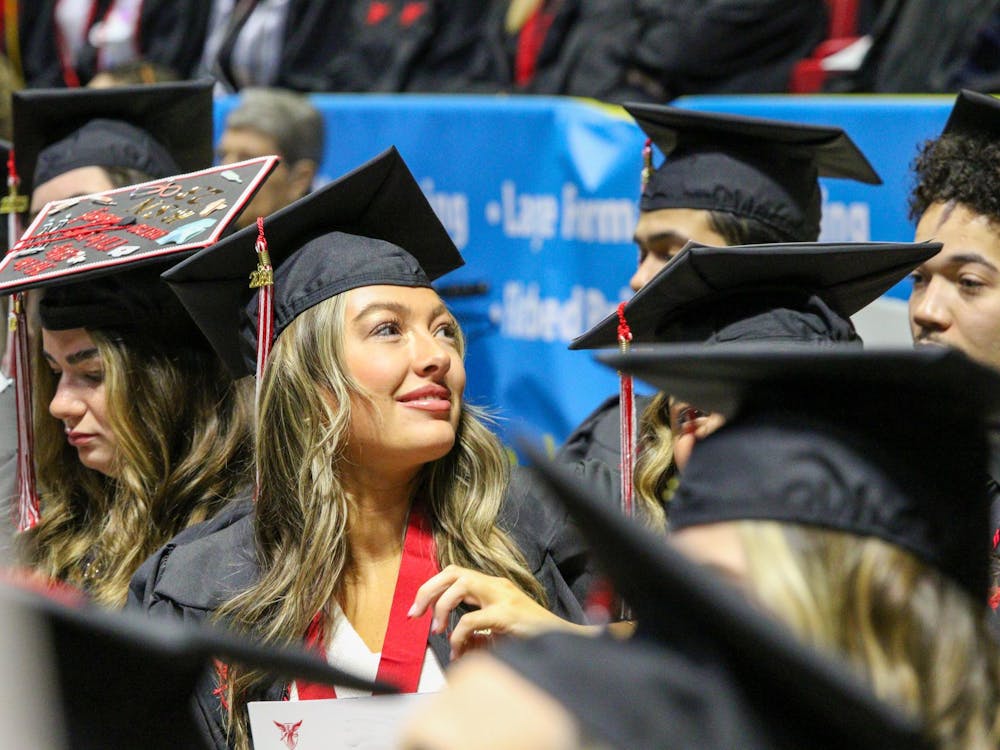The Center for Peace and Conflict Studies hosted a panel Thursday to talk to students and community members about their rights to free speech and assembly on campus.
As part of the center's February Discussion Series, the panel featured University Police Department Chief James Duckham, Director of Student Life Melissa Ann Hartley Ginotti, Faculty Council Chair Tarek Mahfouz, Associate Vice President for Student Affairs and Enrollment Services Ro-Anne Royer Engle and Director of the Center for Peace and Conflict Studies Lawrence Gerstein.
“All of us could benefit from freedom of speech and freedom of assembly both on campus, and in our everyday lives,” Gerstein said.
Gerstein previously led an activist group for 15 years and stressed the importance of exercising freedom of speech in an appropriate manner and communication with law enforcement.
In relation, the board discussed the role UPD plays in making sure protests on campus, where student express their freedom of speech, are effective and safe.
“Everyone is entitled to their own opinion,” Duckham said. “Our main goal is to make sure the event goes smoothly.”
Panelists recommended that if a student was interested in organizing a protest, they first go to the Department of Student Affairs to inform them of the potential gathering, and then contact UPD to be active and present at the event.
RELATED: Senate bill could change police response to protests
The Department of Student Affairs operates on a content-neutral basis, meaning that students are not required to inform the department of the reason for their protest. On campus, the West Quad, University Green, and Lafollette Field have all been designated as areas for student-organized protests.
Ginotti spoke of the specific importance of free speech on a college campus.
“This is the place where we are all learning and growing together,” Ginotti said. “Disagreeing helps us better ourselves as learners.”
She emphasized the need for counter-protests to remain respectful and refrain from drowning out the opposition.
“You have to allow people to their own right to free speech,” Ginotti said.
Ginotti also talked about Hecklers Law, which is someone trying to drown someone out or just flat out trying to stop someone from trying to express their freedom of speech. This is prohibited, but is not to be confused with simply counter-protesting against someone or a group.
Mahfouz discuss the importance of education. To him, it is very important that students get a full education and that teachers can do their job as long as they’re careful not to single out certain groups.
“[There is a] freedom of faculty to teach and students to learn” Mahfouz said.





